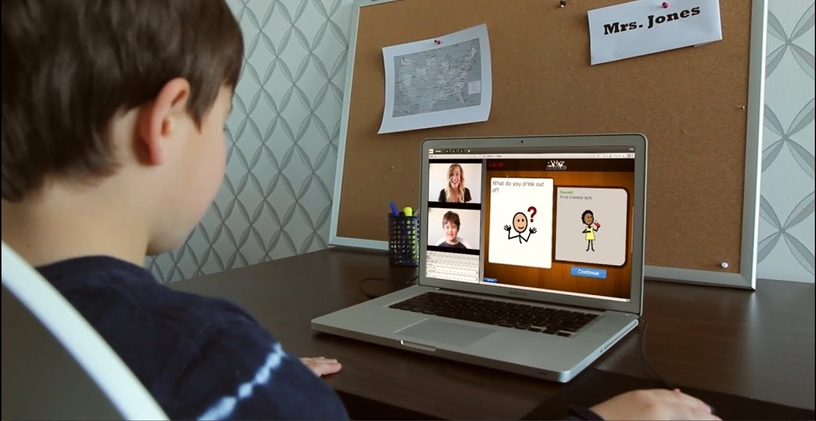Social-Emotional Development In School-Going Children

Social-emotional development is a very important part of the growing up years of children. It forms an integral part of their overall development. Studies suggest that social-emotional development takes place gradually starting from the early childhood days. Therefore, parents have a crucial role in the development of social-emotional skills in children.
Before we look at ways in which parents can play a part in their child’s social-emotional development, let’s understand what is social-emotional development and how does it help our children.
What is Social-Emotional Development?
To understand social-emotional development for children, it is important to understand the relation between emotional intelligence and social skills and behavior.
Understanding Emotional Intelligence
When emotions run high, people do and say things they normally would not. Children may do likewise. It is noteworthy that children have the ability to feel, understand and express emotions from a young age. It probably starts when they are just a few months old, they can show their happiness by smiling at their parents. Children attain emotional maturity as they grow old.
Consider a scenario when your child is unable to understand a concept and is unable to finish his or her homework. Hence, he or she is struggling. Your child can react to it in two ways – either yell, feel frustrated and give up or come up to you to explain the situation and ask for help. These reactions are signs of an important skill that is known as “Emotional Intelligence” (EI). Emotional intelligence is the ability to identify, use, understand and manage emotions in an effective and positive manner.
Essentials of Emotional Intelligence
There are 5 key essentials that form emotional intelligence:
- Self-awareness – Self-awareness is when you recognize your emotions as they happen. Developing self-awareness requires tuning in to your true feelings. If you evaluate your emotions, you can manage them.
- Self-regulation – We seldom have control over the emotions we are experiencing. However, we can control how long the emotion will last. Some ways to alleviate negative emotions such as anger, anxiety or depression can be taking a long walk or meditation or prayer.
- Motivation – Motivating yourself for any achievement requires clear goals and a positive attitude.
- Empathy – Understanding and sharing the feelings and emotions of people around you is empathy. Empathizing with others is a crucial factor to build a positive and strong relationship.
- Social skills – The ability to communicate with others in a clear and concise manner define your social skills. A person with good social skills empathizes with others, communicates better and is aware of his or her emotions too.
Emotional Quotient (EQ)
It is a well established fact that Intelligence Quotient (IQ) alone is not enough for a successful individual. Scientific research suggests that emotional intelligence is twice as strong as a factor to determine a child’s success in later years as IQ. Among the ingredients of success, IQ has roughly 10% (at best 25%); the rest depends on everything else — including Emotional Quotient (EQ). Emotional Quotient is how our emotional intelligence is measured. Testing and improving your EQ is the need of the hour now.
A person with high EQ can communicate better, resolve disputes and conflicts, manage stress better and is likely to feel less anxious. It is also seen that people with high EQ tend to have better relationships and empathize better with people compared to the ones with lower EQ. Our emotional intelligence influences our behaviour and hence, our relationships.
There is a lot of focus on a child’s academic achievement while emotional self-regulation is largely ignored. Being a parent puts you in a position to steer your child towards a positive attitude and healthy relationships with people around them. Parents have a big role in shaping up their children to become emotionally strong. This will help them to develop good self-esteem and also manage stress and have good mental health later in their life.
Social Skills and Behaviour
Social skills development of children happens when they learn to interact with others around them. It includes how a child is able to express and manage own emotions and establish a meaningful and respectful relationship with others. Social development also determines how a child deals with conflicts that might arise with peers. For children to develop foundational skills such as cooperation, following directions, demonstrating self-control, and paying attention, they must have social skills. Studies show that social skills directly relate to developing leadership qualities in children.
To summarize, social-emotional development enables children to have the ability to recognize and understand their experiences and feelings. They are able to not only express their emotions but also manage them effectively. They are also able to establish and maintain positive and fulfilling relationships with others. As a result, social-emotional development sets a robust foundation for children to grow up to be responsible social, and emotionally balanced adults.
References
This article was originally published by the Learning Body website. You can read the original text from here.







